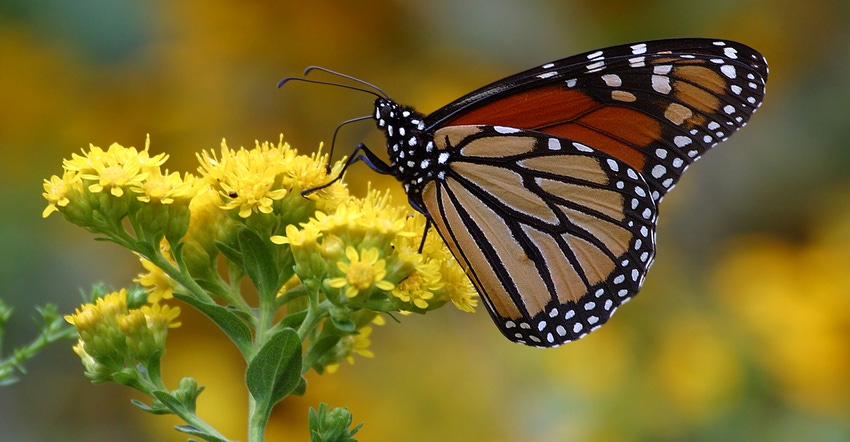July 23, 2020

Looking for a late summer educational activity to do with your kids outside that can be carried out with social distancing?
Consider volunteering as part of the fourth annual International Monarch Monitoring Blitz. Join with thousands of volunteers in Canada, Mexico and the U.S. to observe and report monarch activity for one week, starting July 24 and ending Aug. 2.
Professional researchers have limited ability to do field work due to COVID-19 restrictions. The observations sent in by volunteers are more important than ever this year.
“We need a better picture of monarch distribution within its breeding range across North America, so every observation counts. Even if it's from your own backyard.” says Alessandro Dieni, Mission Monarch coordinator at the Montréal Space for Life Museum’s Insectarium.
To take part in the Blitz, submit your data to the Monarch Larva Monitoring Project if you are east of the Rocky Mountains in the U.S. Submit to Western Monarch and Milkweed Mapper if you are west of the Rocky Mountains.
In Canada, submit your observations to Mission Monarch. In Mexico, submit your data to Naturalista. In addition to entering data through these programs, follow the Blitz on social media using the hashtag #MonarchBlitz.
"Monarch butterflies are a flagship species for pollinator conservation in North America and a symbol of international cooperation. Join others who are helping to conserve their spectacular migration by contributing to the International Monarch Monitoring Blitz," says Katie-Lyn Bunney, education coordinator at the Monarch Joint Venture.
Parents with limited experience in observing monarchs can start with a little basic research to help themselves and their children learn ahead of time what milkweed plants look like, where they are most often found, and how to identify monarch eggs, caterpillars, chrysalises and butterflies. Then hit the road for locales nearby where you might find milkweed and monarchs at all stages of life.
For the week from July 24 to Aug. 2, the Blitz invites people across North America to look for milkweed plants and survey them for monarch eggs, caterpillars, chrysalises and butterflies. This information will help researchers identify priority areas for monarch conservation actions.
Data gathered during the Blitz is uploaded to the Trinational Monarch Knowledge Network, where it is accessible for anyone to consult and download.
For this year’s Blitz, the organizers are stressing that observers put their own well-being and that of themselves, their families and their friends first. Before participating in any activities, look up and carefully follow the health and safety measures for COVID-19 recommended by the authorities in your region.
The Blitz is an initiative of the Trinational Monarch Conservation Science Partnership, created through the Commission for Environmental Cooperation. Through the Blitz, scientists from the Montréal Space for Life’s Insectarium, Environment and Climate Change Canada, Monarch Joint Venture, Journey North, the U.S. Fish and Wildlife Service, the Xerces Society for Invertebrate Conservation, and Mexico's Comisión Nacional de Áreas Naturales Protegidas are asking the public to help them understand monarch and milkweed distribution throughout North America.
Source: Trinational Monarch Conservation Science Partnership, which is solely responsible for the information provided and is wholly owned by the source. Informa Business Media and all its subsidiaries are not responsible for any of the content contained in this information asset.
Read more about:
ResearchYou May Also Like




